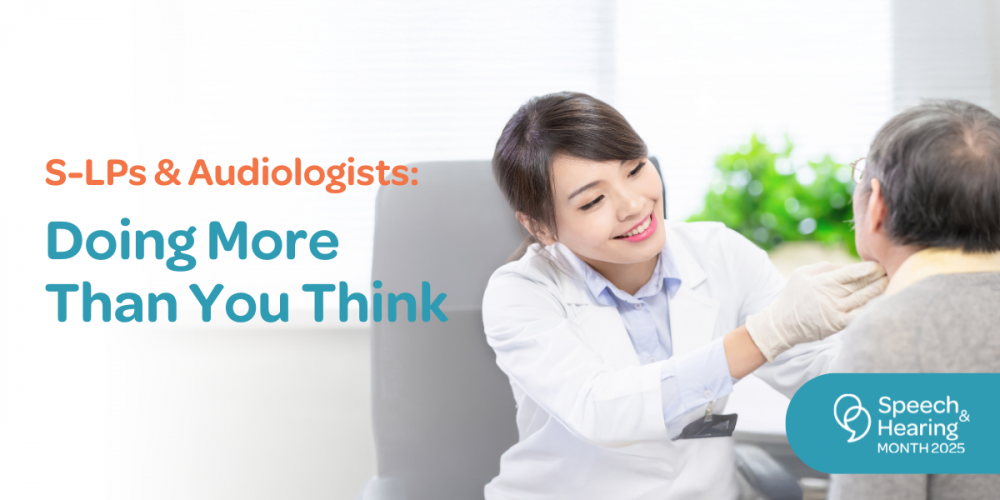How group singing can enhance your practice as a speech-language pathologist or audiologist

May is Speech and Hearing Month in Canada! Every year, our friends at Speech-Language & Audiology Canada (SAC-OAC) dedicate this time to raise awareness about communication challenges and the supports that make a difference. This year’s theme, “S-LPs & Audiologists: Doing More Than You Think,” underscores the vital yet often overlooked role of S-LPs and audiologists.
S-LPs and audiologists play a pivotal role not only in improving communication outcomes for people with communication challenges, but also in supporting broader wellbeing –– including success in work, education, relationships, and other areas of life that rely on effective communication.
This interplay between communication function and wellbeing is at the heart of SingWell’s research on the impacts of group singing for people with communication challenges. When people sing together on a regular basis, we see meaningful improvements in speech and hearing function, alongside gains in other key aspects of wellbeing –– often in a mutually reinforcing relationship, as S-LP Nicole Gallegos described in SingWell’s recent speaker series:
“The social communication, that enjoyment, boosting someone’s confidence –– those are all directly impacting how well someone can communicate. So although communication is the number one thing I’m working on as a speech-language pathologist, I feel like finding that hope, finding that connection and enjoyment of life together is what fosters that.”
– NICOLE GALLEGOS (Speech-Language Pathologist)
While SingWell’s research is still investigating how the different social, biological and physiological processes involved in group singing interact with each other, the outcomes are clear. Here are some of the key findings on how group singing impacts communication function –– and why it’s increasingly recognized as a nonclinical intervention that can complement the work of S-LPs and audiologists:
Group singing helps improve speech articulation and fluency through rhythmic breathing and vocal repetition. This consistent practice is especially beneficial for individuals with speech disorders, aphasia, or communication challenges, helping them refine speech patterns and increase clarity.
Singing in a group strengthens the brain’s ability to process pitch and differentiate speech patterns. This supports individuals with hearing impairments or auditory processing disorders by improving their auditory discrimination skills – particularly the ability to understand speech in noisy environments – which is crucial for effective communication.
Singing promotes healthy breathing and strengthens the muscles involved in speech production, such as the diaphragm and vocal cords. This is particularly helpful for individuals with breathing disorders, dysarthria or those recovering from stroke, improving both speech clarity and voice projection.
Group singing fosters social connection and boosts confidence, reducing social anxiety around communication. This emotional support enhances verbal interactions and encourages more effective communication in everyday life.